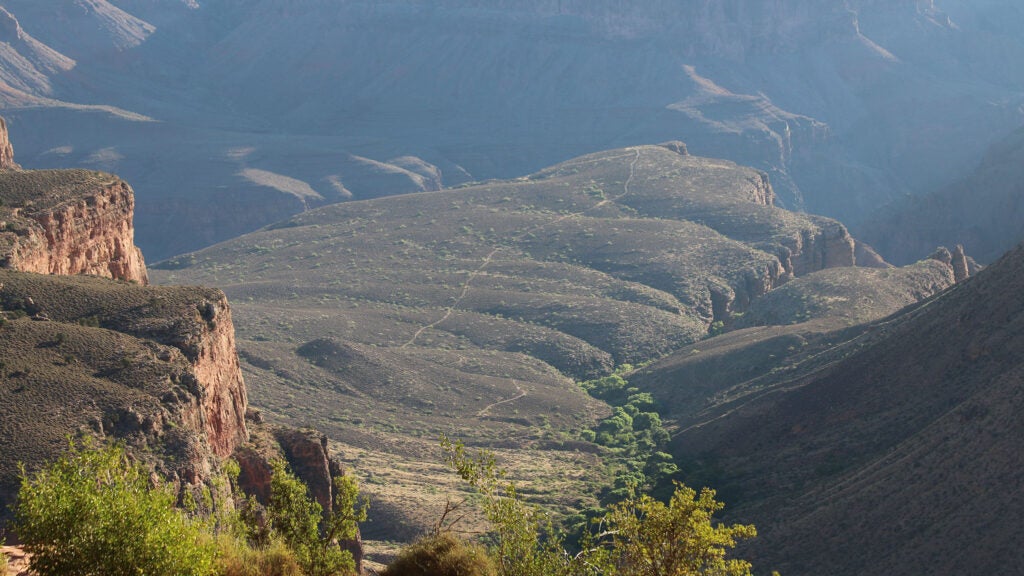Products You May Like
Get full access to Outside Learn, our online education hub featuring in-depth fitness, nutrition, and adventure courses and more than 2,000 instructional videos when you sign up for Outside+
Sign up for Outside+ today.
A Grand Canyon National Park campground is sporting a new name this week after a government body voted to ditch its old, offensive moniker.
In a unanimous vote earlier this month, the U.S. Board on Geographic Names voted to change the name of Indian Garden to Havasupai Gardens, following a request from the tribe of the same name who have resided in the canyon for hundreds of years. The National Park Service announced the change on Monday, and noted that efforts to change the name on maps and signs were already underway. The NPS and Havasupai Tribe plan to hold a renaming ceremony in 2023.
“The eviction of Havasupai residents from Ha’a Gyoh coupled with the offensive name, Indian Garden, has had detrimental and lasting impacts on the Havasupai families that lived there and their descendants,” Havasupai Chairman Thomas Siyuja, Sr. wrote in a press release. “Every year, approximately 100,000 people visit the area while hiking the Bright Angel Trail, largely unaware of this history. The renaming of this sacred place to Havasupai Gardens will finally right that wrong.”
Grand Canyon National Park Superintendent Ed Keable said that the park was “proud” to work alongside the Havasupai to change the campground’s name:
“The Havasupai people have actively occupied this area since time immemorial, before the land’s designation as a National Park and until the park forcibly removed them in 1926. This renaming is long overdue. It is a measure of respect for the undue hardship imposed by the park on the Havasupai people.”
Located along the Bright Angel Trail, Havasupai Gardens was originally known as Ha’a Gyoh before the U.S. government forcibly relocated the tribe from the inner canyon. In 1928, the NPS removed the last Native resident of the area, who the agency called Billy Burro. His descendents, who later changed their name to Tilousi, or “storyteller,” were among those who fought for the campground’s name change. Carletta Tilousi, a member of the family and former tribal Council member, said that she hoped the name change would inspire other tribes to “reclaim their lands” by changing names there as well.
